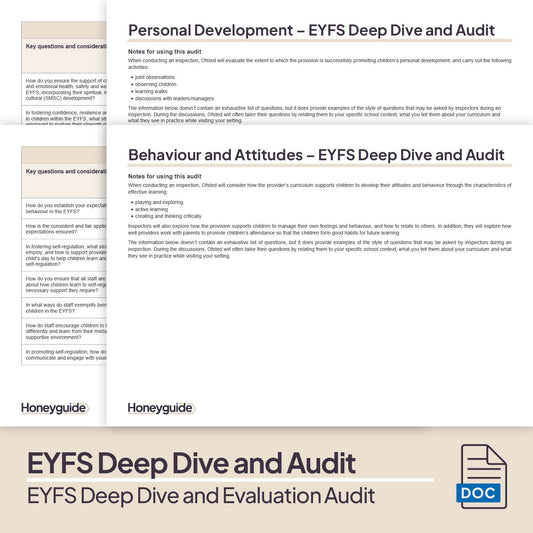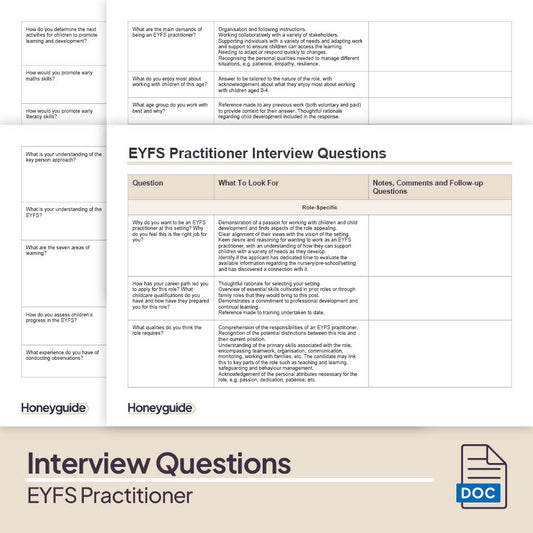Collection: EYFS
Explore resources to support Early Years Foundation Stage (EYFS) leaders, including pre-school and nursery leaders, to develop and improve EYFS provision.
-
EYFS Deep Dive and Evaluation Audit Bundle
Regular price £20.00Regular priceUnit price / per -
EYFS Leader Folder Pack
Regular price £15.00Regular priceUnit price / per£20.00Sale price £15.00Sale -
EYFS Practitioner Interview Pack
Regular price £5.00Regular priceUnit price / per






